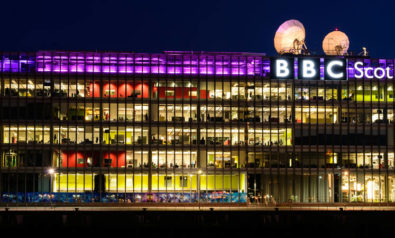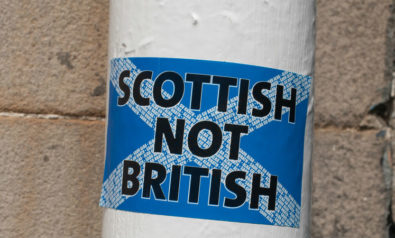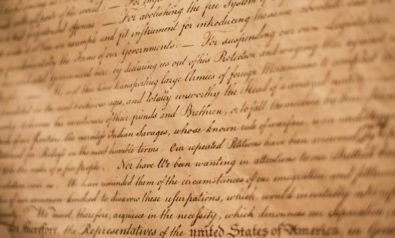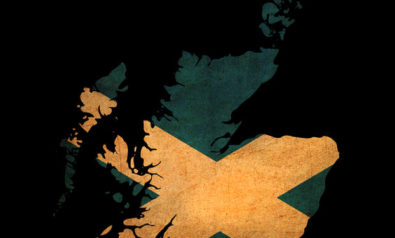Will Scotland secede from the United Kingdom?
Background
On September 18, 4 million voters in Scotland will be asked a “yes” or “no” question that could have profound implications for their country, and for the United Kingdom of which it is a part: “Should Scotland be an independent country?”
The fact that the referendum is scheduled to coincide with the 700-year anniversary of the Battle of Bannockburn, a landmark victory for the Scottish during the First War of Scottish Independence, highlights the historically fraught relationship between England and Scotland. This has included numerous cross-border disputes and campaigns for independence from English subjugation, of which this referendum is arguably just the latest.
Since King James VI of Scotland unified the English and Scottish crowns in 1603, the union has not always been harmonious. While there has been little by way of violence between the two countries since the Jacobite revolt of 1745, several attempts have been made in the interim period to secure Scottish home rule. These culminated in 1999 when the Scottish Parliament was established in Holyrood, granting Scotland a range of legal powers, while still leaving it ultimately subservient to the will of Westminster.
It seemed as though the question of Scottish devolution had been settled, by and large. That is, until May 2011, when Alex Salmond’s Scottish National Party (SNP) won a sweeping victory to take control of the Scottish Parliament, and demanded that a referendum on independence be held. In October 2012, First Minister Salmond and British Prime Minister David Cameron signed the Edinburgh Agreement, outlining the terms for the referendum to be held in 2014.
The campaign in favor of independence, Yes Scotland, is being led by the SNP, along with the Scottish Green Party and the Scottish Socialist Party. It has sought to promote the benefits of an independent Scotland, finally granted political autonomy, much greater economic self-sufficiency, and the possibility of its own range of social policies divorced from the traditional elites that control Westminster.
Meanwhile, the Better Together campaign, championed by the Conservative, Labour and Liberal Democrat parties that dominate politics in London, believes that both Britain and Scotland will suffer in terms of finances, culture and security by breaking apart.
Polls have consistently shown that the majority of people in Scotland would prefer to retain the union, even if they do prefer the notion of greater autonomy. However, in recent weeks, the polls have tightened considerably, with the latest showing just a six-point lead for the No vote, down from 17 points in June. Following the final televised debate between Salmond and Better Together leader Alistair Darling, polls indicating a decisive SNP victory.
Why is the Scottish Referendum Relevant?
Scotland has been in a solid political union with England, as part of Great Britain, for more than 300 years. Scottish identity is widely considered to be an integral part of the wider identity of the UK. Yet there are far more tangible reasons that make the upcoming referendum very relevant to the future of the UK.
The Yes campaign points to the many benefits of political independence that are taken for granted by the stronger party of any union: the ability to determine social policy; to choose which wars to enter into; and to levy and spend taxes in a way deemed most suitable for that geographic entity. Independence would certainly incur notable costs, such as the need to negotiate entry into the European Union and NATO, and the loss of the collective security of the UK. Scotland on its own would have struggled to bail out Scottish banks in the wake of the financial crisis. But these are costs worth paying for the sake of genuine political independence, according to Yes Scotland.
The rest of the UK would face its own notable changes. The British parliament would require significant reform, having been shorn of 59 out of 650 seats in the House of Commons. This could result in a major boost to the Conservatives, who currently have only one Scottish member of parliament; without Scotland, the Tories would have won a majority of 21 in the 2010 general election, thus avoiding the need for a coalition with the Liberal Democrats. Cameron’s opposition to Scottish independence, then, could at least partly be attributed to a fear of being the prime minister who oversaw the breakup of the union.
The UK without Scotland would have notable economic consequences. Britain would be be deprived of a significant source of revenue in terms of the North Sea’s oil reserves, to which Scotland could be entitled to as much as 90%, representing billions of pounds in annual revenues. The UK itself would lose 32% of its land mass, albeit only 8% of its population. It would be forced to relocate its nuclear submarine fleet, currently based on the River Clyde.
In the event of a No vote, the issue of further devolution of powers — specifically a significant broadening of powers over taxation and welfare policies — may arise once more. But with the next general election to be held in 2015, such an issue would likely take something of a backseat, especially given the Tories’ of support north of the border.
A Yes vote, meanwhile, would represent only a first step in a long process toward Scottish independence. Negotiations would then begin, over issues like a potential currency union and the splitting of oil revenues, to determine the precise shape of the new political landscape in Britain and Scotland.
The views expressed in this article are the author’s own and do not necessarily reflect Fair Observer’s editorial policy.
For more than 10 years, Fair Observer has been free, fair and independent. No billionaire owns us, no advertisers control us. We are a reader-supported nonprofit. Unlike many other publications, we keep our content free for readers regardless of where they live or whether they can afford to pay. We have no paywalls and no ads.
In the post-truth era of fake news, echo chambers and filter bubbles, we publish a plurality of perspectives from around the world. Anyone can publish with us, but everyone goes through a rigorous editorial process. So, you get fact-checked, well-reasoned content instead of noise.
We publish 2,500+ voices from 90+ countries. We also conduct education and training programs on subjects ranging from digital media and journalism to writing and critical thinking. This doesn’t come cheap. Servers, editors, trainers and web developers cost money.
Please consider supporting us on a regular basis as a recurring donor or a sustaining member.
Support Fair Observer
We rely on your support for our independence, diversity and quality.
Will you support FO’s journalism?
We rely on your support for our independence, diversity and quality.











